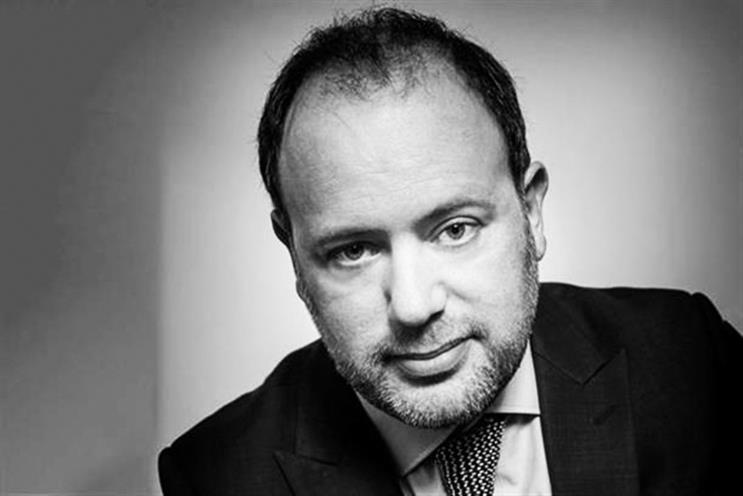There are many reasons to look back on 2020 with sadness.
Tens of thousands of Britons have died. Many people have lost their jobs or struggled to find work. Children have had their education interrupted. And enforced isolation and social distancing will have long-lasting consequences.
Yet this painful period has also brought out some of the best in advertising and marketing – with countless examples of kindness, collaboration, creativity and ingenuity.
It has been a year that has changed the ad industry for the better.
We have learned to work smarter and more collaboratively. We have been inventive and resourceful. We have experimented and adapted quickly. We have confronted racism and other prejudices that have gone unchallenged for too long. And we have discovered a lot of business can continue without travel or meeting in person.
We have coped because this is an industry that is fuelled by creativity and ideas and energy.
Violent change can be destructive, as I warned in a column at the start of this crisis. But “creating opportunities out of a shredded plan”, as Jessica Lovell, chief strategy officer of Wonderhood Studios puts it in her Year Ahead essay in the December/January issue of ±±ľ©Čüłµpk10, has also been exhilarating.
The coronavirus slump has shredded many plans, yet it has also accelerated many changes that were already happening, such as the shift to digital and ecommerce and remote working. “We changed more in a few weeks than in 10 years,” Dave Lewis, the then chief executive of Tesco, said in April.
The economic fallout has been cruel because some businesses and sectors have been hit worse than others. Ecommerce, consumer packaged goods, healthcare and technology companies have done well. Travel, hospitality and high-street retail have suffered unduly – with a knock-on effect on media owners such as cinemas and out of home.
To an extent, coronavirus has polarised existing trends in advertising and media and more widely across business. Digital and cloud-based companies have pulled further ahead. Analogue and fixed-asset companies have struggled.
The pandemic has underlined the importance of leaning into change early and investing in digital. Companies such as Arcadia, the owner of Topshop, that failed to do so are paying the price.
We will have to live with the virus for a long time and that will bring more change. So it is not surprising that many brands were wary of shaking up their advertising and marketing arrangements in 2020.
The past nine months have shown it is possible to conduct a pitch remotely but a number of advertisers such as BT, Uber and Walgreens Boots Alliance decided to renew or expand an existing local or international relationship with a trusted agency partner.
However, recessions are also a time when brands are willing to take a chance on new and smaller players. The explosion in the number of agency launches in recent months is a good omen for 2021.
Bringing creativity and technology closer
At a macro-level, one of the great challenges facing the ad industry at the end of this pandemic year is the same issue that confronts clients – how to digitally transform their businesses.
Advertising and marketing companies should be in the vanguard of change because there has been phenomenal growth in digital media consumption and ad expenditure in the last decade. Yet it is the tech platforms, not agency holding companies or established media owners, that have set the pace and enjoyed most of the growth.
Creativity and technology have become separated when they should be much closer. When WPP merged AKQA and Grey in November, Andreas Malm, global chief marketing officer and chief creative officer of Volvo Cars, a client of both agencies, welcomed the decision because he said the ad industry has become “scattered” and “a little bit lost” in recent years. “Instead of embracing each other, there’s been somewhat of a conflict” between creativity and technology, Malm added.
Now, as companies plan ahead and look to grow again, it makes sense to expand further and faster into digital. Christian Juhl, global chief executive of Group M, says the media buyer “should look more like a software company” in five years’ time and it is tempting to think that is the solution for all businesses.
On Interpublic’s most recent earnings call, Philippe Krakowsky, the incoming chief executive, was asked if IPG needs to be more of “a tech company or at least a tech services company relative to a marketing services company” but he resisted the suggestion.
“The challenge is actually to have it be technology that enables the services, so that the [creative and marketing and data] services are more valuable and so that we can ultimately be more valuable for the clients,” Krakowsky said.
Creativity, informed and inspired by technology, offers a bright future in a Covid world.
Gideon Spanier is UK editor-in-chief at ±±ľ©Čüłµpk10. This is an edited version of a column that appears in the December/January double issue.



